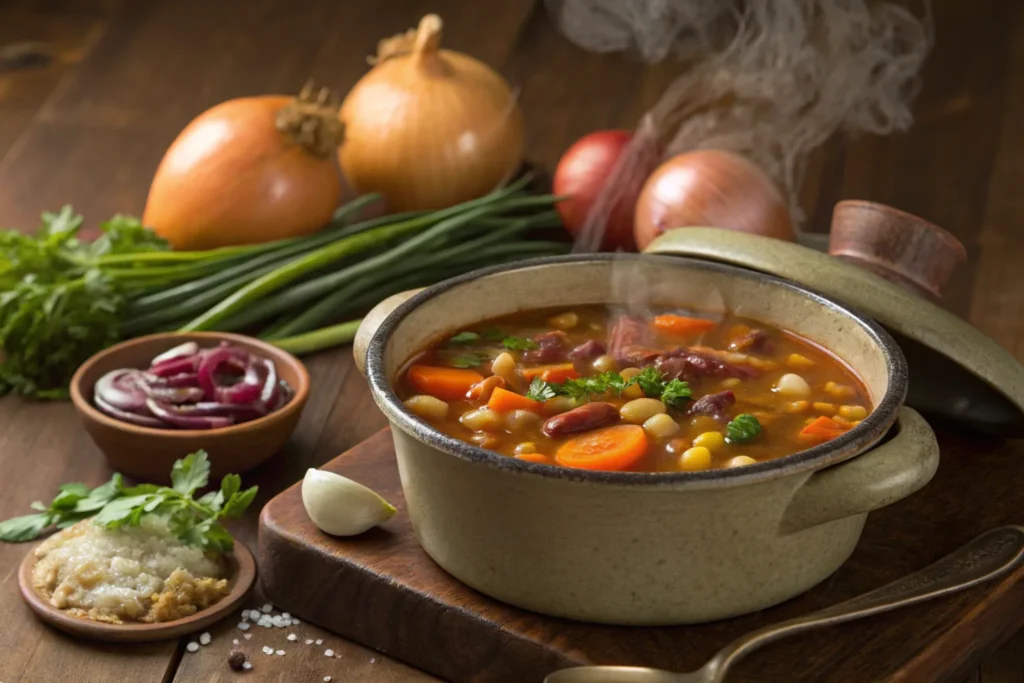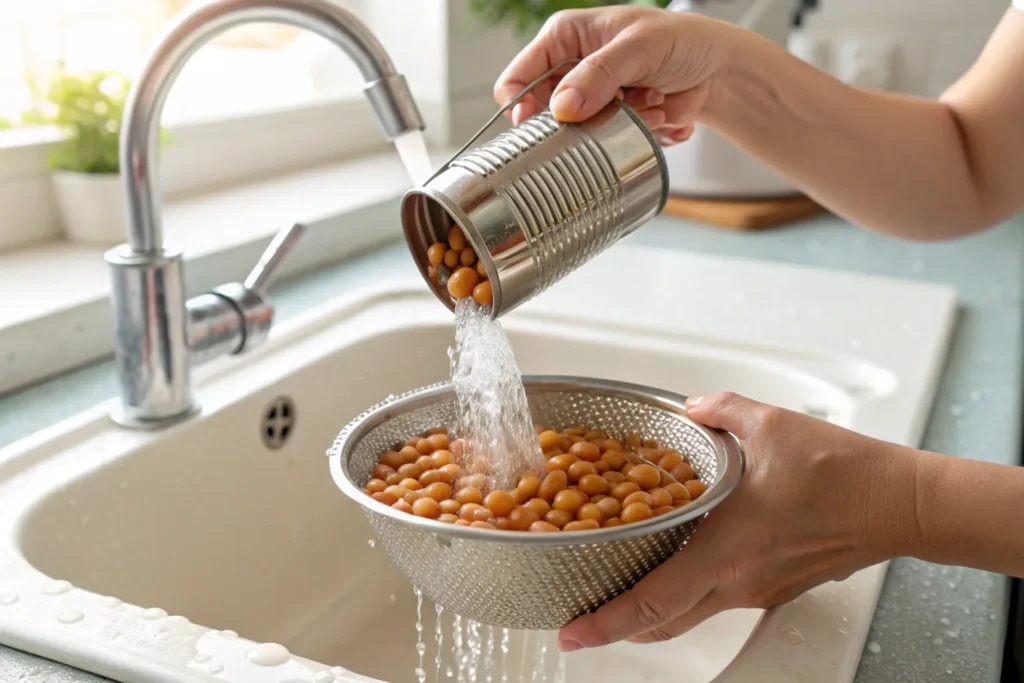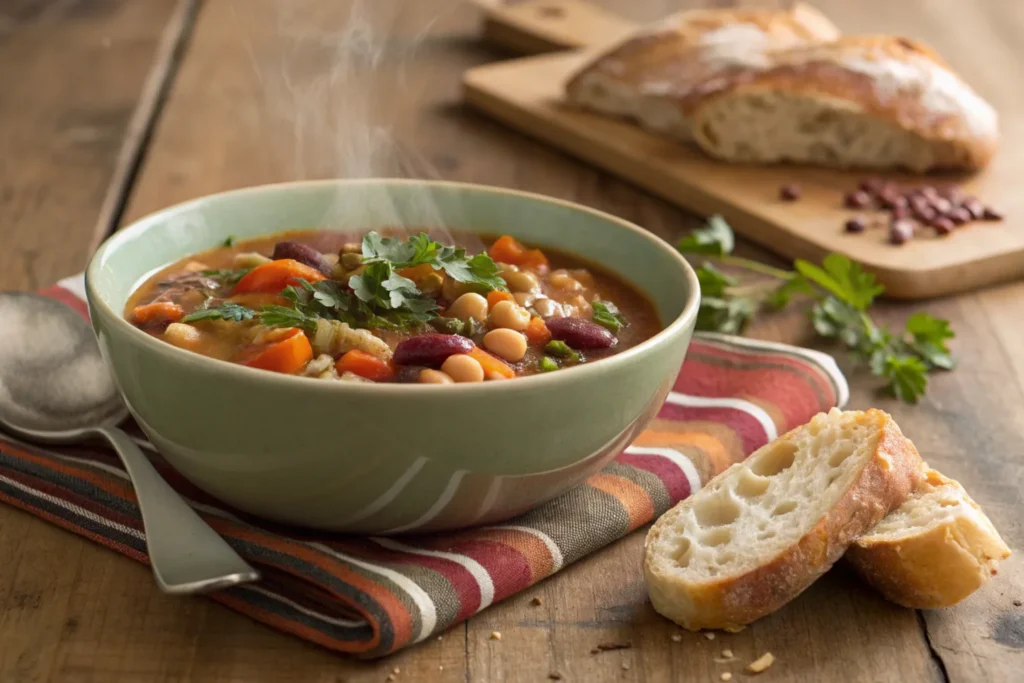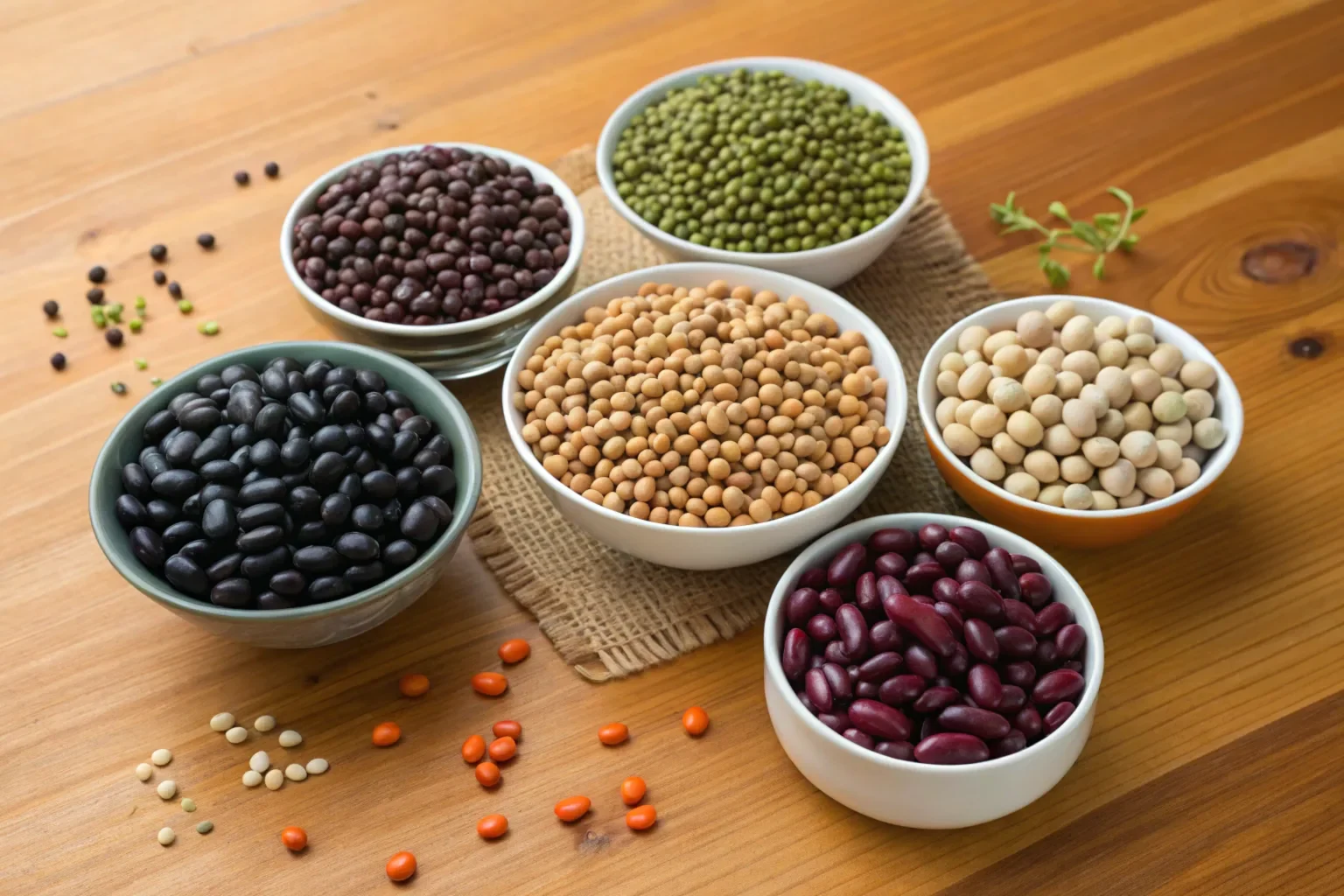Beans are a staple ingredient in soups around the world, and for good reason—they’re packed with nutrients, affordable, and incredibly versatile. But when it comes to choosing the healthiest beans for soup, not all varieties are created equal. Some beans stand out for their unique health benefits and ability to transform a simple broth into a nutrient-rich, satisfying meal.
So, what are the healthiest beans for soup? In this guide, we’ll explore the top contenders, their health benefits, and tips for using them in your favorite recipes. Let’s dive in and find the perfect beans for your next pot of soup!
Why Are Beans a Healthy Ingredient for Soups?
Beans bring a wealth of nutritional benefits to soups, making them a smart choice for anyone looking to eat healthier. Here’s what makes them so special:

Packed with Plant-Based Protein
Beans are an excellent source of protein, especially for those following vegetarian or vegan diets. Adding beans to soup helps create a complete, balanced meal that fuels your body and keeps you energized throughout the day.
Why Fiber in Beans is Great for Healthy Soups
Most beans are loaded with dietary fiber, which promotes healthy digestion and supports heart health by lowering bad cholesterol levels. High-fiber soups are also more filling, helping to curb overeating.
Low-Fat, Nutrient-Dense Beans for Soup Recipes
Beans are naturally low in fat but rich in essential vitamins and minerals like iron, potassium, magnesium, and folate. These nutrients are vital for energy, bone health, and maintaining a healthy immune system.
Versatile and Affordable for Meal Prep
Beans are one of the most versatile ingredients you can add to your soup. They pair well with various flavors and cuisines, and their affordability makes them an excellent choice for meal prepping on a budget.
The Healthiest Beans for Soup and Their Benefits
When it comes to picking the healthiest beans for soup, several options stand out. Each variety brings unique flavors and nutritional benefits, making your soup both delicious and nourishing.

Black Beans: A Nutritional Powerhouse
Black beans are rich in protein, fiber, and antioxidants. They’re particularly high in anthocyanins, which help protect your cells from damage. Black bean soup is a classic example of how these beans can shine in a recipe. For inspiration, check out this black bean soup recipe that highlights their versatility and flavor.
Lentils: High in Protein and Iron
Lentils are packed with plant-based protein and are one of the best sources of iron among legumes. They cook quickly and absorb flavors beautifully, making them ideal for hearty soups.
Chickpeas (Garbanzo Beans): Great for Fiber and Satiety
Chickpeas are high in fiber and low in fat, making them excellent for digestion and keeping you full. They add a nutty flavor and creamy texture to soups while being incredibly versatile.
Kidney Beans: One of the Healthiest Beans for Soups
Kidney beans are vibrant, delicious, and nutrient-dense. They’re high in antioxidants, which support overall health and immunity. These beans work well in chili-like soups or Mediterranean-inspired dishes.
Navy Beans: A Low-Calorie, Heart-Healthy Soup Ingredient
Navy beans are small, tender, and rich in soluble fiber, which helps lower cholesterol. They’re perfect for creamy soups and pair wonderfully with earthy spices.
Cannellini Beans: Creamy and High in Magnesium
Cannellini beans, also known as white kidney beans, are creamy, mild, and high in magnesium, a mineral crucial for bone and muscle health. They’re excellent in Italian soups like minestrone or paired with fresh herbs.
Tips for Choosing the Right Beans for Your Soup
Selecting the best beans for your soup involves more than just grabbing whatever’s in your pantry. Consider these tips to enhance the flavor, texture, and nutritional value of your dish.

How to Pick the Right Beans for a Healthy Soup
Different beans bring unique flavors to the table. For example, black beans add a hearty, earthy taste that’s perfect for spicy or smoky soups, while chickpeas offer a nutty, buttery flavor ideal for Mediterranean-style soups. Choose beans that complement the overall theme of your recipe. If you’re experimenting with flavors, this Asian cucumber salad recipe might inspire a refreshing pairing.
Using a Variety of Beans to Make Soup More Nutritious
Combining different types of beans not only adds visual appeal but also increases the range of nutrients in your soup. A mix of kidney beans, cannellini beans, and lentils creates a balanced and colorful bowl packed with protein, fiber, and antioxidants.
Are Low-Sodium Beans Healthier for Soups?
Dried beans have no added sodium and often have a better texture and flavor than their canned counterparts. If you’re using canned beans, go for low-sodium options and rinse them thoroughly to reduce the salt content. For more on whether to drain canned beans, check out this guide on should you drain black beans for soup.
Why Rinsing Beans Makes Soup Healthier
Soaking dried beans before cooking can reduce compounds that may cause bloating or gas. Rinsing canned beans also helps remove excess sodium and any preservatives. This simple step can make your soup healthier and easier to digest.
How Beans Compare to Other Protein Sources in Soup
Beans stand out among protein sources because they are plant-based, cholesterol-free, and packed with fiber. While meat-based soups offer protein, they often come with added saturated fat. On the other hand, soups made with beans like black beans or lentils provide clean, sustainable protein while supporting heart health and digestion. This makes beans an excellent choice for those seeking a healthier, more balanced diet.
For example, a black bean soup recipe can provide the same hearty satisfaction as a beef chili, but with fewer calories and no added fat. Chickpeas, when used in soups, create a creamy texture and deliver a nutty flavor, often eliminating the need for heavy cream or cheese.
How Cooking Methods Affect the Nutritional Value of Beans in Soup
The way beans are prepared can significantly impact their health benefits. Cooking dried beans from scratch allows you to avoid preservatives and control sodium levels. If you’re using canned beans, rinsing them thoroughly can reduce up to 40% of the sodium content, making your soup healthier.
Adding beans to a slow cooker or pressure cooker enhances their flavor while preserving nutrients. Lentils, for instance, cook quickly and retain their protein and iron content, making them ideal for soups. Pairing these beans with vegetables in your soup not only increases fiber but also adds a variety of vitamins and minerals for a balanced meal.
FAQs: What Are the Healthiest Beans for Soup?
The healthiest type of bean depends on your nutritional goals. Black beans are rich in antioxidants, lentils are high in protein and iron, and chickpeas are excellent for fiber and satiety. Navy beans are great for heart health, while kidney beans pack a punch of antioxidants.
Low-sodium or no-salt-added canned beans are the healthiest options. They retain their nutrients like protein and fiber while having less added sodium. Rinsing canned beans can further reduce sodium content.
Yes, eating bean soup daily can be part of a healthy diet. Beans provide protein, fiber, and essential nutrients that support digestion, heart health, and overall wellness. However, ensure variety in your diet and watch sodium levels, especially with canned beans.
Both black beans and pinto beans are healthy choices. Black beans are higher in antioxidants, while pinto beans provide slightly more fiber. Choosing between them depends on your taste preference and nutritional needs.
Black beans, lentils, and chickpeas are often considered superfoods due to their high nutrient content. They’re loaded with protein, fiber, vitamins, and minerals, making them excellent for overall health.
Both lentils and beans are healthy, but lentils are generally higher in protein and iron, while beans like black or kidney beans offer more fiber and antioxidants. Your choice should depend on your nutritional needs and the type of dish you’re preparing.
The best canned beans for soup are black beans, chickpeas, kidney beans, and cannellini beans. Look for low-sodium varieties, and rinse them thoroughly before adding them to your soup for a healthier meal.
Conclusion
Beans are one of the healthiest and most versatile ingredients you can add to soup. Whether you prefer black beans for their antioxidants, lentils for their high protein content, or chickpeas for their fiber, each variety brings unique nutritional benefits to the table. By choosing the right beans and preparing them thoughtfully, you can create a soup that’s as delicious as it is nourishing.
Remember, the healthiest beans for soup are those that align with your dietary needs and flavor preferences. Opt for fresh or low-sodium canned beans, and don’t be afraid to mix different types for variety and added nutrition. Pair your soup with a vibrant side like this Asian cucumber salad for a complete and balanced meal.
If you’re ready to start cooking, try this black bean soup recipe or explore tips on why black bean soup might taste bitter. Whichever beans you choose, you’ll be creating a hearty, healthy dish that’s perfect for any occasion.
Happy cooking!


2 thoughts on “What Are the Healthiest Beans for Soup? (Top Picks and Benefits)”
Comments are closed.